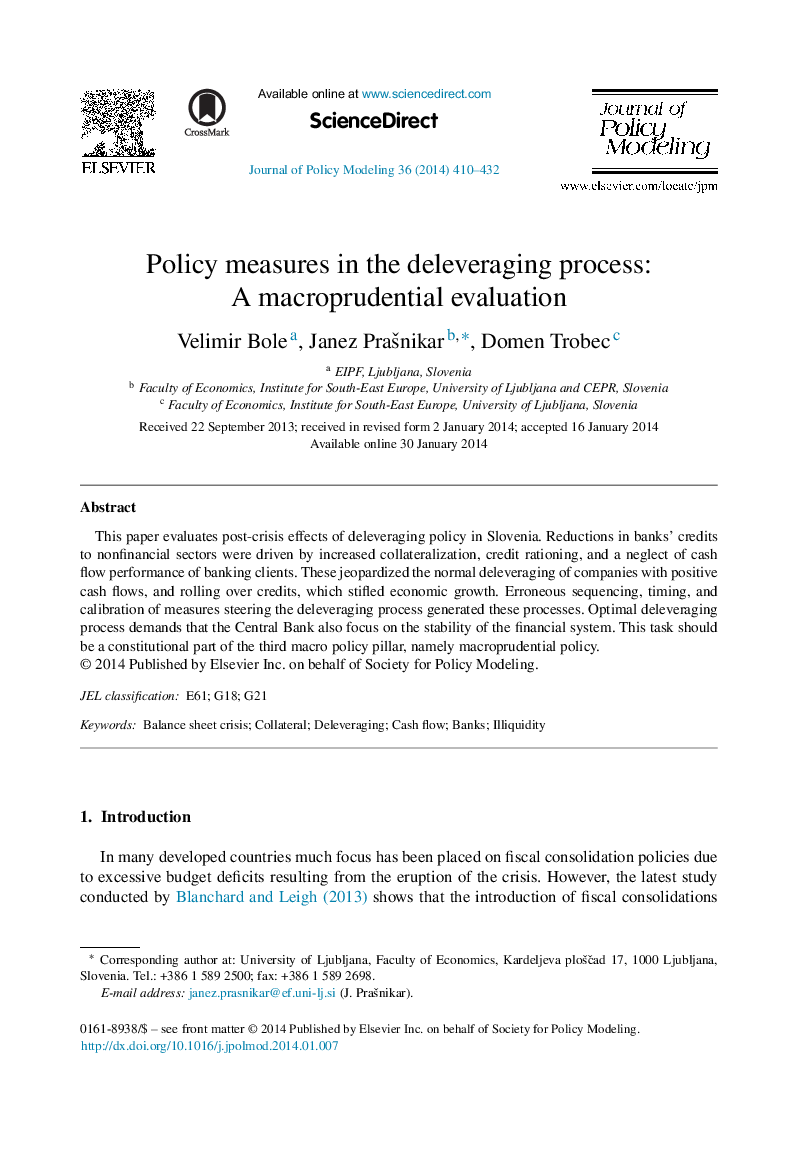| Article ID | Journal | Published Year | Pages | File Type |
|---|---|---|---|---|
| 10478943 | Journal of Policy Modeling | 2014 | 23 Pages |
Abstract
This paper evaluates post-crisis effects of deleveraging policy in Slovenia. Reductions in banks' credits to nonfinancial sectors were driven by increased collateralization, credit rationing, and a neglect of cash flow performance of banking clients. These jeopardized the normal deleveraging of companies with positive cash flows, and rolling over credits, which stifled economic growth. Erroneous sequencing, timing, and calibration of measures steering the deleveraging process generated these processes. Optimal deleveraging process demands that the Central Bank also focus on the stability of the financial system. This task should be a constitutional part of the third macro policy pillar, namely macroprudential policy.
Related Topics
Social Sciences and Humanities
Economics, Econometrics and Finance
Economics and Econometrics
Authors
Velimir Bole, Janez Prašnikar, Domen Trobec,
